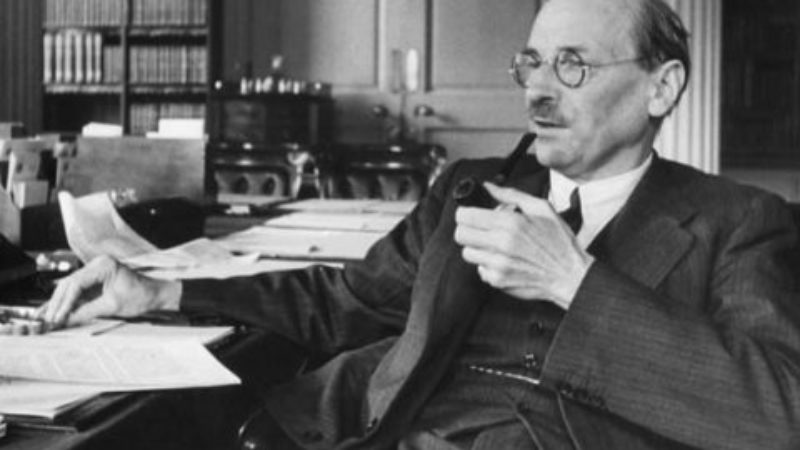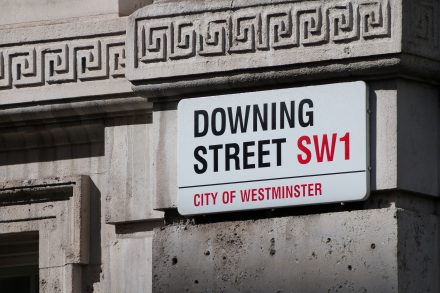
Whatever happens next, Labour’s 2024 election victory will go down in history along with its small handful of earlier landslide triumphs.
The most fondly remembered by Labour people is, of course, that of 1945 when the party won 49.7% of votes cast and a majority of 145 Commons seats. Guided by Clement Attlee, Labour reshaped Britain in a social democratic direction for a generation and more.
If Margaret Thatcher dismantled and reversed many of its achievements, in the form of the National Health Service, the Attlee government lives on, just about, eight decades later.
For good or ill, Attlee and colleagues like Aneurin Bevan and Ernie Bevin have cast a shadow over subsequent Labour administrations and leaders. Historians and party members love measuring their own times against the achievements of Attlee’s cabinet – and invariably to the detriment of the present.
Read more of our 2024 general election results coverage (article continues below):
Election night as it happened: Key results unpacked in historic landslide
Labour results tracker: Full list and map of Labour gains, holds, losses, new MPs
‘We did it’: Keir Starmer’s victory speech as Labour crosses key 326 seat line
‘A landslide masks discontent left, right and centre. Labour has its work cut out’
‘What should we look for in Keir Starmer’s cabinet?’
‘Keir Starmer is at the peak of his power. How should he make the most of it?’
After 2010, the Labour left appropriated the 1945 government, seeing it as a model of socialist radicalism, one the party should emulate to challenge the austerity that followed the banking crisis. This process was undoubtedly helped by the 2013 movie The Spirit of ’45, a feel-good historical fantasy directed by Ken Loach, which became a favourite with supporters of Jeremy Corbyn.
Despite its boldness, Attlee’s Labour was out of power very quickly
This has meant that, for most of Keir Starmer’s leadership, 1945 has been invoked to cast shade on his cautious path to power. Sharon Graham of Unite spoke for many when she argued in 2023 that “we need be as bold as the 1945 Labour government“, noting: “There wasn’t much money about then, I can tell you.” That, so far as many in the party are concerned, is the only lesson Starmer needs to learn from the Attlee period.
But 1945 has another and perhaps more compelling and relevant message for the Labour leader as he makes his first moves as Prime Minister.
For, despite its much-vaunted ‘boldness’, the government elected with a landslide in July 1945 was reduced to a majority of just five Commons seats in the February 1950 election; and when Attlee sought to improve that position in October 1951, Labour lost out to a resurgent Conservative Party which remained in power until 1964.
How did this happen to a government of almost unprecedented and bold achievement? Its sad fate is even more mysterious because in 1951 Labour’s vote share at 48.8% was almost as high as it was in 1945 and meant the party won nearly a quarter of a million more votes than the victorious Conservatives.
Labour’s approach caused frustration – which the Tories exploited
The reason is, however, not hard to find. Attlee’s overriding priority was to transform an exhausted wartime economy into a dynamic export-focused peacetime operation amidst a world in turmoil. If Labour nationalised various industries under the rhetoric of socialism, the basic reason was that ministers expected this would make them more efficient and help a largely capitalist economy make that transition.
But instead of things only getting better, they got worse: rationing, shortages and queues for essential goods became the bane of most Britons’ lives. Labour’s almost disinterested focus on turning the economy around in the country’s long-term interests led to its own (and original) version of austerity. Individual consumption was purposely limited by the state to shift vital resources to revenue-earning export industries.
Doing the right thing economically however meant Labour opened the door to the Conservatives who enthusiastically exploited popular frustration with austerity – as articulated in the famous 1949 Ealing comedy Passport to Pimlico. This allowed the party to appeal especially to middle-class voters who had supported Labour for the first time in 1945.
Thanks to this opportunism, made under the banner of ‘Freedom’, and Conservatives squeezing the Liberal vote, constituencies on the south coast and in the commuter suburbs around London returned to the party in large numbers. Labour in contrast racked up bigger majorities in working class seats it already held.
Starmer could face similar attacks from the Tories and Reform
Labour’s current talk of ‘hard choices’ made to promote a ‘decade of national renewal’ based around its long-term five missions, the achievement of which all require increasing private and public investment in the economy in the expectation productivity will improve, certainly has echoes of the austere 1940s.
Conservatives – and now Reform – will hope to emulate Winston Churchill’s party and exploit any frustrations should this strategy falter or fail to deliver in a timely fashion – most obviously before Labour seeks reelection.
After all, Prime Minister Starmer seeks the kind of growth that has eluded most recent governments without which he will be unable to finance promised improvements in the public services. In this, the Labour leader does not lack ambition; but his strategy contains plenty of risks.
A party in which Morgan McSweeney has any influence is unlikely to be as politically naive as was Attlee’s. Moreover, Labour’s 2024 landslide in Commons seats was based on just 34% of votes cast and thanks to a spectacularly efficient vote distribution. The precarious nature of this victory means it is unlikely many in the leadership will see it as more than the first tentative steps towards a sustained period in power.
That said, Attlee’s deputy was the arch-pragmatist and electoral wizard Herbert Morrison and he constantly warned the party against the consequences of losing the middle class vote – but to little avail given many members believed, as we now know erroneously, the forward march of Labour could not be reversed.
Read more on how the night unfolded:
Liz Truss loses South West Norfolk: Beaten by a lettuce, beaten by Labour
Scotland results: Labour makes big gains as SNP obliterated
Wales results: Labour bags 27 of 32 seats as Tories wiped off the map
Jacob Rees-Mogg: Senior Tory loses seat as Labour mayor Dan Norris wins
Gaza: Jon Ashworth loses in Leicester as independents win Blackburn and Batley
Islington North: Jeremy Corbyn holds on in strong result over Labour
Nuneaton, Stevenage, Swindon, Worcester: Labour wins in key bellwether marginals
Read more on what could come next for Labour in power:

100 days: What happens during the first 100 days of a Labour government?
Delivering pledges: ‘Change is hard – how can Labour achieve it?’
Manifesto: ‘12 great policies you may never have heard of’
Foreign affairs: ‘Whatever happens to Biden, Starmer faces a US challenge’
Trilemma: IFS warns Starmer will likely have to pick cuts, debt or tax hikes
Read more on how Labour fought this campaign in key battlegrounds:

Aldershot: Can Labour win the ‘Home of the Army’ for the first time in a century?
Bolsover: Labour’s Natalie Fleet on death threats, Dennis Skinner and class today
Brighton Pavilion: Can Labour win the Greens’ one seat?
Bristol Central: Inside Labour’s battle to counter the insurgent Green Party
East Thanet: Inside the battle for coastal ex-UKIP stronghold not won since 2005
Edinburgh endgame: The seat where SNP defeat would signal Labour majority
Dover and Deal: Small boats and Tory mutineers: Can veteran Mike Tapp win?
Finchley and Golders Green: Can Labour win back Britain’s most Jewish seat?
Glasgow South West: Meet the NHS doctor fighting one of Scotland’s tightest marginals
Monmouthshire: ‘Why this CLP is setting the standard in this campaign’
Sheffield Hallam: ‘Can Labour’s Olivia Blake hold on in Nick Clegg’s old seat?’
South West: Could Labour take ‘non-battleground’ Tory seats?
Wimbledon‘s battle of the bar charts: Inside a rare election three-horse race
SHARE: If you have anything to share that we should be looking into or publishing about this story – or any other topic involving Labour or the election – contact us (strictly anonymously if you wish) at [email protected].
SUBSCRIBE: Sign up to LabourList’s morning email here for the best briefing on everything Labour, every weekday morning.
DONATE: If you value our work, please donate to become one of our supporters here and help sustain and expand our coverage.
PARTNER: If you or your organisation might be interested in partnering with us on sponsored events or content, email [email protected].




More from LabourList
‘Labour won’t stop the far right by changing leaders — only by proving what the left can deliver’
‘Cutting Welsh university funding would be economic vandalism, not reform’
Sadiq Khan signals he will stand for a fourth term as London Mayor